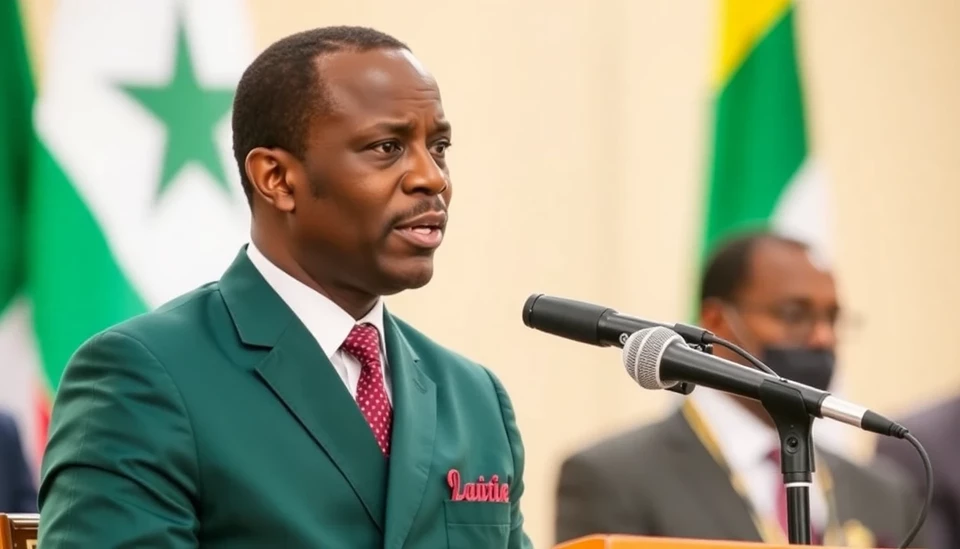
In a bold move that could significantly reshape Ghana's economic landscape, the leading candidate for the presidency, Dr. Mahamudu Bawumia, has expressed intentions to renegotiate the country's $3 billion loan agreement with the International Monetary Fund (IMF). With the general elections approaching in December, Bawumia's proposal aims to address key issues faced by the nation amid economic challenges.
Bawumia, who is currently the vice president of Ghana and a member of the ruling New Patriotic Party (NPP), has voiced his concerns regarding the stringent conditions attached to the IMF deal. He asserts that the agreement, which was originally established to help stabilize the Ghanaian economy, may impose harsh constraints that affect growth and development. His proposed revisions to the deal focus on making it more favorable for the average Ghanaian citizen while sustaining the country’s fiscal health.
During his campaign, Bawumia highlighted that the current economic situation in Ghana demands a more nuanced approach to international financial agreements. He argues that the terms set forth by the IMF could potentially hinder economic recovery and development initiatives that are crucial for the country’s future. His stance aligns with growing public sentiment that seeks to prioritize local economic growth over international financial obligations.
Bawumia's plan includes a detailed analysis and possible adjustments to the fiscal targets, subsidy allocations, and other pivotal components of the IMF agreement. While the specifics of his proposed reworking remain to be fully outlined, the candidate aims to engage with stakeholders, including economists and business leaders, to formulate a revised strategy that better serves the interests of Ghanaians.
His declarations come at a time when Ghana is grappling with rising inflation and a depreciating currency, both of which have amplified the call for economic reform. Bawumia's proposals have sparked discussions among financial analysts who emphasize the importance of carefully balancing domestic priorities with the expectations and requirements set by international lenders like the IMF.
Although Bawumia faces competition from several other candidates in the upcoming election, his commitment to revising the IMF deal could resonate with voters feeling the impacts of economic hardships. As the electoral campaign intensifies, it remains to be seen how his promises will be received by the electorate and whether they will translate into actionable policies should he secure victory.
Political analysts predict that this initiative could position Bawumia favorably among voters who are increasingly skeptical of foreign intervention in local economic matters. The outcome of the election will undoubtedly play a critical role not only in shaping the future of Ghana's economic policies but also in the country's broader relationship with international financial institutions.
As the December elections draw closer, the scrutiny of Bawumia's proposed changes to the IMF deal will likely intensify, setting the stage for a pivotal moment in Ghana's economic journey.
#GhanaElections #IMF #Bawumia #EconomicReform #GhanaPolitics #InternationalFinance #GhanaEconomy
Author: Laura Mitchell




